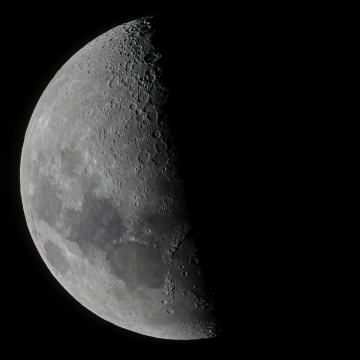The relationship between the Moon and productivity has been the subject of debate and speculation for centuries. From ancient civilizations that worshiped the Moon as a deity to the modern era of science and technology, the influence of our natural satellite on our daily lives has been a fascinating question.
The Moon throughout History
The Moon has played a significant role in cultures around the world throughout history. From the ancient Egyptians, who followed the cycles of the Moon to plan their harvests, to Chinese traditions that celebrate the Mid-Autumn Festival in honor of the full Moon, the presence of the Moon in our lives is undeniable. In many cultures, the Moon has also been associated with fertility, wisdom, and spiritual enlightenment.
In astrology, the Moon is believed to influence emotions and our psychology. According to astrology, the Moon rules emotions and the subconscious, leading to the belief that its phases can affect our mood and behavior. For example, it is said that the full Moon can intensify emotions and cause insomnia, while the new Moon is associated with new beginnings and greater focus on goals.
Moon Phases and Productivity
One of the most common beliefs about the relationship between the Moon and productivity is that the phases of the Moon can influence our performance and efficiency at work. Below, we will analyze each of the lunar phases and how they are believed to affect productivity:
new Moon
During the new Moon, the Moon is in its initial phase and is not visible in the night sky. It is commonly associated with a period of renewal and new beginnings. Some people believe that this lunar phase is conducive to setting goals and focusing on fresh projects. It can be a good time for planning and organization, which could increase productivity.
Crescent moon
As the Moon grows in size, this lunar phase is believed to boost energy and creativity. Some people find that they are more productive during this phase, as they feel motivated to move forward on their tasks and projects. The growing Moon can be an appropriate time to make important decisions and carry out determined actions.
Full moon
The Full Moon is perhaps the most famous lunar phase in terms of its influence on people. It has been associated with an increase in emotional agitation and insomnia. Some believe this could negatively impact productivity, as lack of sleep and emotional turmoil can make it difficult to concentrate and focus at work.
Waning moon
The waning Moon marks the beginning of the decrease in lunar size and is associated with the removal of obstacles and the completion of projects. For many people, this lunar phase is conducive to problem solving and eliminating what is no longer necessary. It can be a good time to close chapters and complete pending tasks.
Is there scientific evidence?
While beliefs about the Moon's influence on productivity are popular in popular culture and astrology, solid scientific evidence is scarce. Studies attempting to link the phases of the Moon with productivity have not produced conclusive results.
In 2013, a study published in the Journal of Sleep Research examined the effect of the full moon on sleep quality and found no significant relationship. Other studies have investigated the relationship between the Moon and human behavior, but the results have been inconsistent and often not replicable. Importantly, science has not found a solid basis for popular beliefs about the Moon's influence on productivity. Most explanations for how the Moon might affect productivity are based on assumptions and cultural beliefs rather than solid scientific evidence.
Factors That Truly Affect Productivity
While the Moon's influence on productivity can be a fascinating topic, there are other, much stronger factors that affect our efficiency at work. Some of these factors include:
1. Personal Habits: Time management, planning and organization are key personal habits that influence productivity. Setting clear goals, prioritizing tasks, and maintaining a calendar are effective practices for improving work efficiency.
2. Health and Wellbeing : Physical and mental health play a crucial role in productivity. Adequate sleep, a balanced diet, and regular physical activity are essential for maintaining high levels of energy and concentration.
3. Work Environment: The work environment, including lighting, noise and ergonomics, can influence productivity. A clean and organized workspace can help minimize distractions and promote focus.
4. Motivation and Commitment: Personal motivation and commitment to tasks are key factors for productivity. Setting realistic goals and maintaining motivation over time are essential to achieving effective results.
5. Technology and Tools: Using the right tools and technology can increase productivity. Time management apps, collaboration software, and communication tools can facilitate efficient work.
Although the belief in the Moon's influence on productivity is intriguing and has been part of the culture for centuries, science has not conclusively supported this idea. Instead, there are many much stronger factors that affect our productivity, such as our personal habits, our health and well-being, our work environment, our motivation, and the tools we use.
While there is no scientific evidence to support the relationship between the Moon and productivity, there is nothing wrong with paying attention to our own natural rhythms and personal preferences. Some people may find that they feel more energetic or creative during certain moon phases, and that's okay as long as it doesn't become a source of stress or anxiety.






